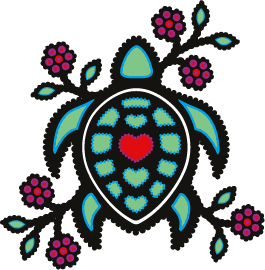PNIE, Chronic Stress & Occupational Therapy
Psychoneuroimmunoendocrinology (PNIE)- what does this mean? An extremely long word, but let me break it down into its parts.
Psycho - meaning psyche, and refers to the conscious and unconscious mind. This term encompasses our thoughts and emotions. Psyche comes from the Greek psykhe, which means “the soul, mind, spirit, or invisible animating entity which occupies the physical body”.
Neuro - is the nervous system and is made up of two major parts, the central nervous system, and the peripheral nervous system. These two parts of the nervous system act jointly to assure your body is communicating all of its sensory information and needs.
Immuno- is the immune system which is a network of organs, cells and proteins that defend the body against infection, whilst protecting the body's own cells.
Endocrinology - is the endocrine system which is a network of glands and organs. It uses hormones to control and coordinate your body's metabolism, energy level, reproduction, growth and development, and response to injury, stress, and mood.
The PNIE system is a field of study that looks at the communication, and connection between all of these systems and its implication on health and disease. The study of the PNIE system began as a way to gain a better understanding of allergic, auto-immune, rheumatic (arthritis), neoplastic (uncontrolled growth of cells), endocrine, and cardiovascular diseases and the impact of emotional and mental stress on health.
Essentially - These 4 systems in our body communicate with one another through varying different methods such as cytokines, receptors, neurotransmitters and hormones.
Our psyche (thoughts and emotions) influence our nervous system, our immune system and our endocrine system. This influence also is multi-directional - meaning that the endocrine system, nervous system and immune system influence our thoughts and emotions.
How we think and how we feel impacts our nervous system regulation, our immune functioning and our hormone production
AND
Our immune system, nervous system and endocrine system impact how we think and how we feel.
Stress both weakens our immune system and also causes overreaction. This overreaction of our immune system is what leads to allergies and autoimmune disease.
Why is this important to know?
The most commonly diagnosed conditions for Indigenous people in Canada are mental health conditions, high blood pressure, arthritis, asthma and diabetes.
Diabetes is an endocrine disease
Arthritis is a an auto-immune disease
Mental health conditions are neurological and psychological
Asthma is an immune response
Women are 2 times more likely to experience an auto-immune disorder, often presenting during times of extensive stress. Why are women diagnosed with an increase in auto-immune disorders ? Is it because we live in a society that sees women as less than and are consistently getting the messaging that we are not enough? Why are Indigenous people diagnosed with rheumatoid arthritis at rates three times higher than the average? Is it because of the chronic stress and trauma from Canadian policies such as Residential schools, the Pass system and ongoing oppression and racism?
The understanding of the role of our thoughts and emotions for comprehensive health care is of utmost importance when treating people with chronic conditions. When looking through the lens of the PNIE system - treating diabetes with metformin is not enough of a treatment plan as it does not look at the nervous system or our thoughts and emotions.
I was diagnosed with “chronic hives”, and experienced arthritis (although never formally diagnosed). Both are autoimmune diseases that were brought on during times of intense stress. I have not had an outbreak of chronic hives for a while, but when I am stressed I will feel it in my joints. Thankfully, using the Miskihak OT method I have been able to feel and heal my stuck emotions and create healthier subconscious and conscious thoughts about myself - leading to less and less auto-immune breakouts.
PNIE System and Miskihnak Occupational Therapy
Occupational therapy has carved out space in many different areas in health care. This includes :
Chronic condition management
Mental Health
Ergonomics
Stroke Rehabilitation
Pediatrics including Autism, ADHD and FASD
Miskihnak Occupational Therapy has a unique treatment through the use and understanding of the PNIE system. Please reach out if you have any questions regarding our services including the Beadwork is Medicine program.


